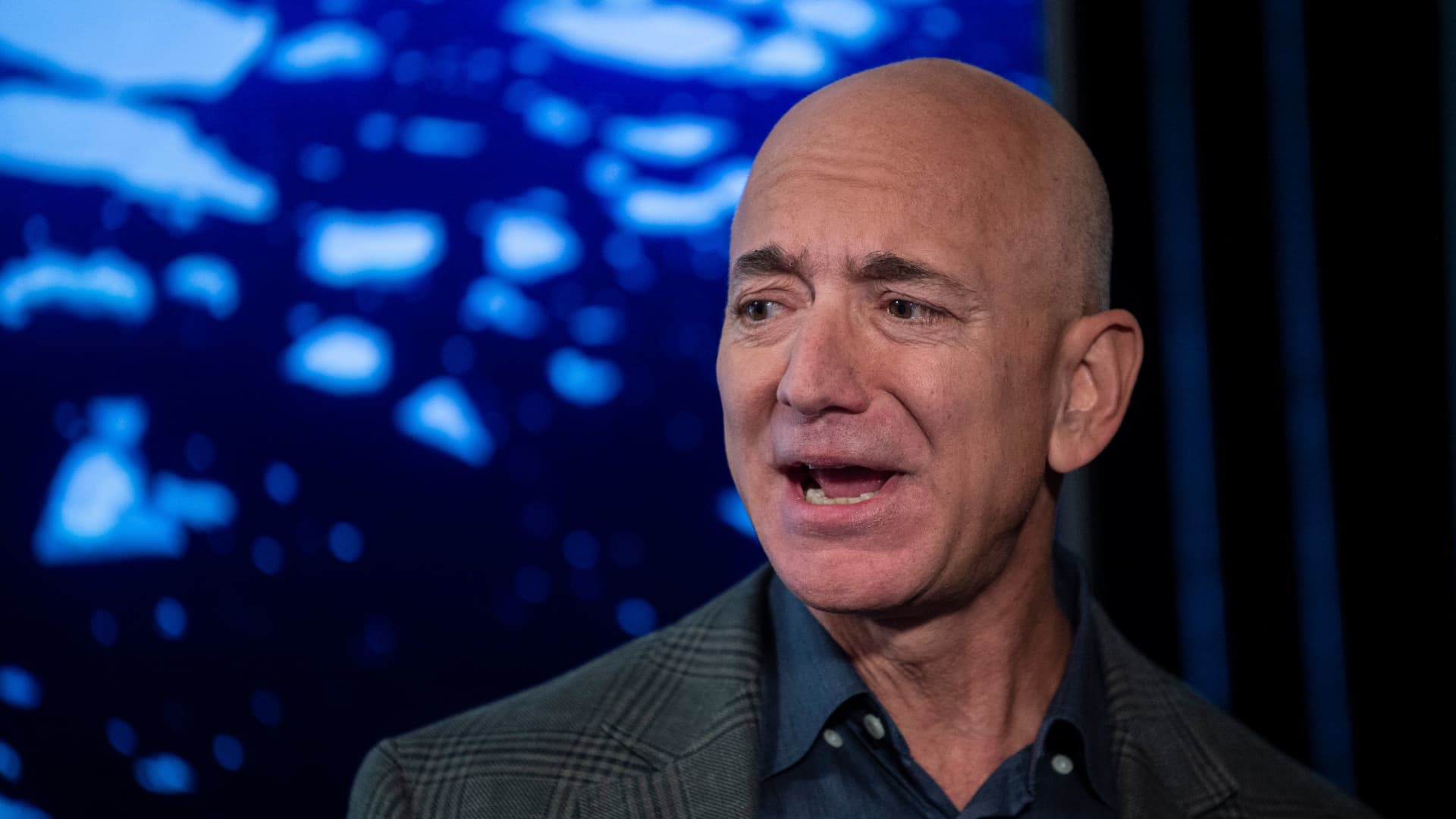Jeff Bezos urged Amazon to flood search results with junk ads, FTC alleges

Amazon flooded its search results with irrelevant “defect” ads at the direction of Founder Jeff Bezos, pumping Amazon profits while steering shoppers to higher-priced goods, the Federal Trade Commission alleged in a newly unredacted portion of its antitrust lawsuit against the company.
“At a key meeting, Mr. Bezos directed his executives to ‘[a]ccept more defects’ as a way to increase the total number of advertisements shown and drive up Amazon’s advertising profits,” the FTC wrote in a now-public part of the complaint. The agency said that defect ads referred to those that that are irrelevant or only somewhat relevant to what a user is searching for.
The agency and 17 states sued the company in late September for allegedly using its monopoly power to increase prices across the web while degrading the shopping experience and excluding rivals. The FTC filed a less-redacted version of the complaint on Thursday, which reveals new details about the effect its growing advertising business has had on shoppers and sellers that use its site.
Amazon began running ads on its site over a decade ago, allowing brands and sellers to bid for higher placement in search results to have their product stand out from competitors. The unit has turned into a juggernaut, and one of Amazon’s higher-margin businesses.
In 2018, Amazon leapfrogged Microsoft to become the third-largest ad platform in the U.S., trailing only Google and Facebook.
Amazon in 2022 began breaking out advertising revenue in its quarterly earnings reports, revealing just how big the business has become. Last month, Amazon said its ad business brought in more than $12 billion in revenue in the third quarter.
Amazon General Counsel David Zapolsky called the initial complaint “wrong on the facts and the law,” and said its actions challenged by the FTC “have helped to spur competition and innovation across the retail industry, and have produced greater selection, lower prices, and faster delivery speeds for Amazon customers and greater opportunity for the many businesses that sell in Amazon’s store.”
“Amazon works hard to make it fast and easy for customers to find the items they want and discover similar options by providing a mix of organic and sponsored search results based on factors including relevance, reviews, availability, price, and speed of delivery, along with helpful search filters to refine their results,” Amazon spokesperson Tim Doyle said in a statement. “Kantar, an independent data and insights firm, found Amazon’s advertising to be the most useful and relevant to customers around the world.”
A worse experience for users
According to the new version of the complaint, Amazon’s ads strategy worsened the shopping experience for users.
The proliferation of junk ads led to more relevant organic results being crowded out. In their place, shoppers were served up products that were “plainly not what the customer searched for,” such as an ad for a LA Lakers t-shirt in a search for a Seattle Seahawks t-shirt.
Other results were more puzzling. In one example collected by an Amazon executive, “Buck urine” showed up first in a search for water bottles.
Amazon weighed placing guardrails on ads in search results, but senior executives at the company ultimately determined they shouldn’t be “constrained” by limitations such as how relevant the products were to what shoppers search for.
Even though Amazon knew defect ads worsened the search experience, internal experiments showed the practice had no detrimental effect to its advertising revenue, and therefore its profits. The company went as far as incorporating a “cost of defect” into its ad auction system “to make the most money from its ad auctions.”
“With advertisements being so profitable to Amazon even at higher defect rates, senior Amazon executives agreed, ‘we’d be crazy not to’ increase the number of advertisements shown to shoppers,” the complaint states.
The increase in ads was not just annoying, according to the FTC. It also helped push shoppers toward higher-priced items.
An internal study at Amazon in 2018 found that the median price for sponsored products was higher than that of “neighboring organic content,” according to the complaint, which still redacted the percentage difference between the prices. For an undisclosed percentage of impressions, the study allegedly found, “the [Sponsored Products] price is at least twice that of the organic result.”
“‘[A]s the share of site real estate devoted to sponsored content grows, it becomes harder for customers to undo price effects’ by navigating to lower cost product listings,” the FTC wrote, quoting from the study. “Amazon’s economists also found that as advertising grew, ‘the price difference translates into a material impact on overall site ASP [average sales price].'”
Amazon’s ads strategy not only degraded the experience on the platform for shoppers, but also for third-party sellers, the agency alleges.
Amazon recognized that increasing the amount of advertising drove up the amount it took sellers to get their products in front of shoppers, the FTC alleged. And an Amazon executive explained that the cost, “is likely to be passed down to the customer and result in higher prices for customers,” according to the complaint.
The FTC said that based on public reports, though Amazon engineers found a short-term dip in the number of customers who made purchases when sponsored ads were given prominent placement, those effects “are vastly outweighed in the short term by ad revenue,” the team allegedly said.
WATCH: Amazon shares surge after 3Q earnings surpass expectations. Here’s what the pros say